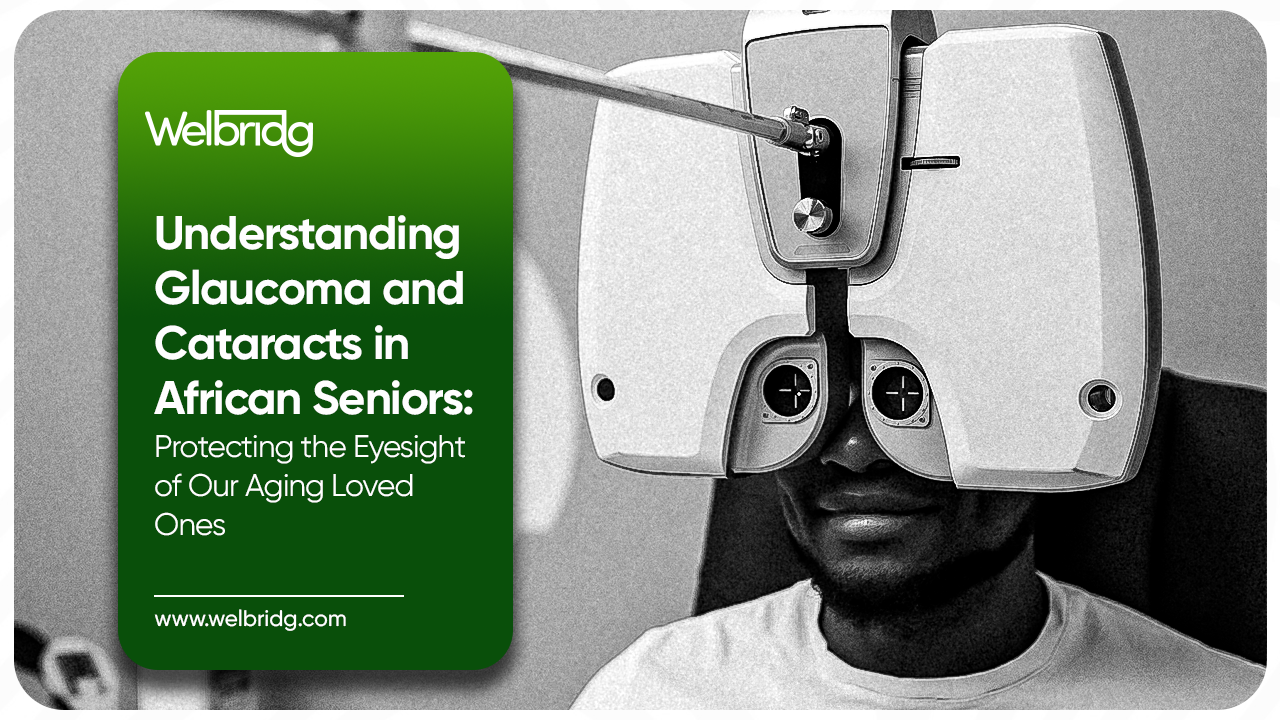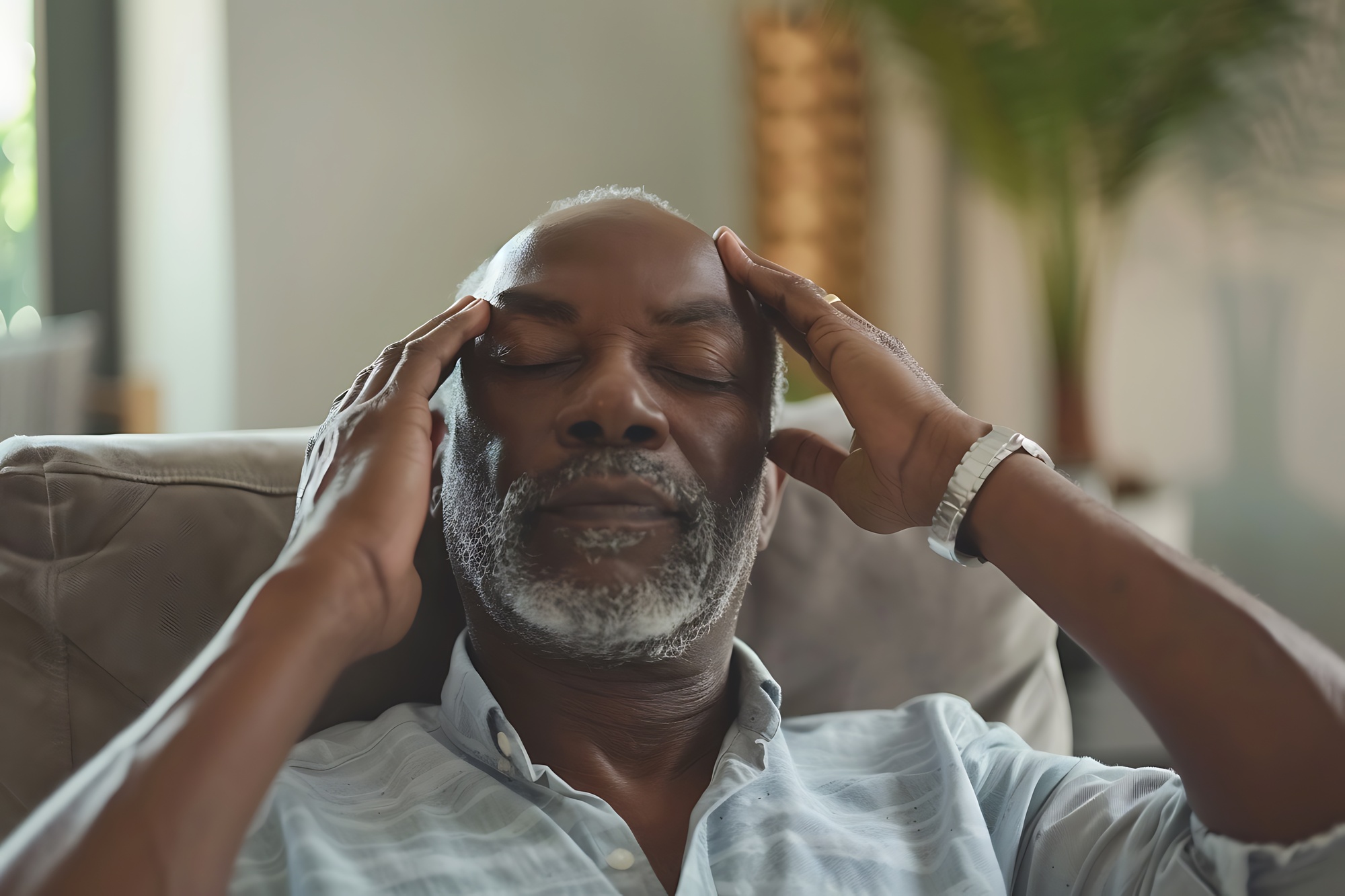5 effective ways to help your elderly parents sleep better
Posted: 17th Apr, 2025 By: yinksey

It was past 2 a.m. when I noticed the light in my mum’s room was still on. At first, I thought she had just forgotten to turn it off, but when I walked in, she was sitting up on the bed, wide awake, her Bible open on her lap.
“Mummy, you’re not sleeping?” I asked, surprised.
She smiled faintly, “I’ve been trying, but sleep just isn’t coming.”
Getting a good night's sleep is essential for everyone, but it becomes especially important as we age.
Unfortunately, restful sleep can become more elusive for older adults due to changes in sleep patterns, health conditions, medications, and even lifestyle.
If your aging parent is tossing and turning at night, you’re not alone, and the good news is, there are simple, practical ways to help.
In this blog, we’ll explore five science-backed tips to help your aging parent sleep better and improve their overall well-being. Whether they’re dealing with insomnia, frequent nighttime waking, or just not feeling rested, these strategies can make a real difference.
Why Sleep Is So Important for Seniors
Sleep is not just a time for rest, it plays a crucial role in physical and mental health. For the elderly, quality sleep supports:
Memory and cognitive function
Immune system health
Emotional well-being
Heart health
Balance and coordination
Poor sleep can increase the risk of falls, depression, memory issues, and chronic health conditions like diabetes and high blood pressure.
That’s why helping your parents get the rest they need isn’t just about comfort, it’s about their long-term health.
You can help your elderly parents improve their sleep quality with these tips:
1. Encourage a Consistent Sleep Schedule
One of the simplest yet most effective ways to improve sleep in the elderly is to encourage a consistent sleep schedule. Our bodies are guided by an internal clock, also known as the circadian rhythm that helps regulate when we feel sleepy and when we feel awake.
Why this works: As people age, the circadian rhythm can shift, often making seniors feel tired earlier in the evening and wake up earlier in the morning. However, erratic sleep and wake times can confuse the body’s clock, leading to poor sleep quality.
How to help:
Encourage your parents to go to bed and wake up at the same time every day, even on weekends.
Keep naps short (20–30 minutes) and avoid napping late in the day.
Help them wind down 30–60 minutes before bed to prepare their body for sleep.
2. Create a Relaxing Bedtime Routine
Just like children benefit from calming bedtime rituals, so do older adults. A relaxing bedtime routine can signal to the brain that it’s time to slow down and get ready for rest.
Ideas for a soothing bedtime routine:
Reading a book or listening to an audiobook
Light stretching or gentle yoga
A warm bath or shower
Calming herbal tea (like chamomile or lavender)
Listening to soothing music or white noise
3. Optimize the Sleep Environment
A comfortable and peaceful bedroom can go a long way in improving sleep quality. If your parent’s room isn’t conducive to sleep, it can trigger wakefulness or discomfort during the night.
Key ways to improve the sleep environment:
Keep it cool and quiet: The ideal bedroom temperature for sleep is between 60–67°F (15–19°C). Use blackout curtains to block light and a white noise machine or fan to reduce noise.
Invest in good bedding: A supportive mattress and comfortable pillows suited to their preferences can significantly enhance comfort.
Remove distractions: Keep the room tidy and minimize electronics. If your parent wakes during the night, ensure they have a safe path to the bathroom.
Creating a “sleep sanctuary” helps signal to the brain that the bedroom is a place for rest—not stress or activity.
4. Monitor Diet and Hydration
What your aging parent eats and drinks throughout the day, and especially before bed can greatly impact their ability to fall and stay asleep.
Foods and drinks to avoid close to bedtime:
Caffeinated drinks (coffee, tea, soda, chocolate)
Heavy or spicy meals
Excessive sugar
Alcohol (can disrupt sleep cycles)
Large amounts of water (may cause nighttime bathroom trips)
What to do instead:
Offer a light, healthy snack before bed; think a banana, a few almonds, or a small bowl of oatmeal.
Encourage hydration during the day rather than in the evening.
If your parent is on medications that disrupt sleep or increase urination, talk to their doctor about adjusting the timing or dosage.
5. Promote Daytime Activity and Sunlight Exposure
Physical activity and exposure to natural light during the day are vital for keeping the sleep-wake cycle on track.
Why this matters:
Exercise helps reduce stress, improve mood, and increase the body's need for rest—all of which contribute to better sleep. Sunlight, especially in the morning, helps reinforce the circadian rhythm.
Ways to encourage daytime activity:
Take a daily walk outside in the morning or early afternoon
Join a senior fitness class or do light stretching at home
Engage in simple chores, gardening, or dancing
Encourage time outdoors to soak in natural sunlight
Limit sedentary time and avoid long naps, which can throw off nighttime sleep.
When to See a Doctor
While lifestyle changes can dramatically improve sleep, it’s important to keep an eye out for signs that something more serious might be at play. If your parent experiences:
Frequent insomnia or waking up tired every day
Loud snoring or choking sounds during sleep (signs of sleep apnea)
Restless legs or muscle cramps at night
Unexplained daytime fatigue or memory issues
These are signs that it may be time to speak with a healthcare provider. Sometimes sleep issues in older adults are linked to underlying medical conditions or medication side effects.
Final Thoughts: Small Changes, Big Impact
Helping your aging parent sleep better doesn’t require a complete lifestyle overhaul. Small, consistent adjustments can lead to significantly improved rest—and a boost in their mood, memory, and overall health.
By encouraging a regular sleep routine, creating a calming environment, adjusting their diet, and promoting daily activity, you can help your loved one get the rest they deserve. And when they sleep better, you’ll likely feel more at ease too.
If you’re looking for more ways to support your aging parent’s wellness, check out our other guides on senior health and caregiving tips.
Also, let’s know if you found this helpful.
RELATED ARTICLES

Managing Diabetes: Small Habits, Better Health
21st Nov, 2025
What is Arthritis? Managing Joint Pain in the Elderly
14th Oct, 2025
6 Most Important Exercises for People Over 60
29th Aug, 2025
How to Maintain a good health in old age
21st Jun, 2025





